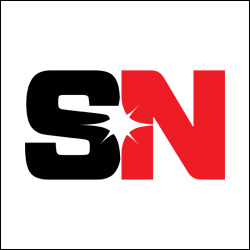NASA Chief Heads to China Amid Lawmaker Concern
NASA Administrator Charles Boldenleft for BeijingOct. 15 amid mixed congressional reaction toBolden's plans tomeet with Chinese officials to discuss the potential for cooperation inhumanspaceflight.
Two House Republicans and a Democratrepresenting theCongressional U.S.-China Working Group wroteBolden Oct. 12 to express their support for the five-day tripand requestthe NASA chief raise the possibility of a "joint-rescue capability inspace that would enable the U.S., China and Russia to rescue eachother's spacecrews."
The letter, signed by Reps. RickLarsen (D-Wash.),Charles Boustany (R-La.) and Mark Kirk (R-Ill.), said Boldenshouldconsider developing a common docking interface for space capsulescapable ofreaching the international space station, including theChinese Shenzhou,Russian Soyuz and NASA's Orion crew capsule, which the agency is stillplanningto develop for use as a crew lifeboat on the orbiting outpost.
"As NASA develops the new Crew ReturnVehicle (CRV)based on the work already done on the Orion crew capsule, the U.S.should begindiscussion on a common docking ring between theCRV, Shenzhou andSoyuz," the letter states. [U.S,China Explore Space Cooperation]
Other lawmakers, however, areadamantly opposed to such cooperationand made sure Bolden was aware of their displeasure.
U.S. Reps. Frank Wolf of Virginia,John Culberson of Texasand Robert Aderholt of Alabama ? all Republicans serving on the HouseAppropriations commerce, justice, science subcommittee that approvesNASA'sannual budgets ? joined California Republican Rep. Dana Rohrabacher inobjecting to Bolden's trip in a letter sent to the NASA chief as heleft town.
"As you know, we have seriousconcerns about the natureand goals of China'sspace program and strongly oppose any cooperation betweenNASA and China,"the lawmakers wrote in the Oct. 15 letter to Bolden. "In light of theshort notice and scant information provided before your departure toChina, werespectfully request a full briefing with you upon your return."
Get the Space.com Newsletter
Breaking space news, the latest updates on rocket launches, skywatching events and more!
Specifically, the lawmakersexpect Bolden toprovide the names and titles of the China National Space AdministrationandChina Manned Space Engineering Office representatives Bolden meetswith, aswell as topics discussed, facilities visited and accords or follow-upmeetingsagreed to, the letter states.
"Most importantly, we would likepersonal assurancethat at no time during your trip there were any discussions ofcooperation onhuman space flight activities," the lawmakers wrote. "In addition wewant a guarantee from you that Members of Congress will be fullybriefed beforeChinese representatives visit the U.S. in November and before you orany otherNASA representative travels to China in the future."
Wolf previously requested acongressional security briefingin advance of the Chinavisit. With lawmakers away on the campaign trail and Boldentied up in atwo-day management retreat with NASA personnel, the briefing did nottakeplace. A congressional aide said Wolf spoke with Bolden by telephoneOct. 13and reiterated his opposition to the visit.
Bolden, in an Oct. 8 letter to Wolf,outlined his itineraryand characterized the trip as "introductory." He also said NASA wouldnot consider any specific proposals from the Chinese for humanspaceflightcooperation and that a reciprocal visit by Chinese government officialsto NASAfacilities in November would be guided by "the degree of transparencyandopenness that is displayed during my visit."
- MakingHistory: China's First Human Spaceflight
- TheBest Manned Spaceships of All Time
- HumanSpaceflight On the Agenda for NASA Chief's China Trip
Thisarticle was provided by Space News, dedicated to covering all aspectsof thespace industry.
Join our Space Forums to keep talking space on the latest missions, night sky and more! And if you have a news tip, correction or comment, let us know at: community@space.com.

SpaceNews is a comprehensive source of news and analysis of the companies, agencies, technologies and trends shaping the global space industry. They work to deliver timely, accurate and engaging coverage of civil, military and commercial space programs. SpaceNews.com delivers essential coverage to a growing audience of more than 500,000 space professionals and enthusiasts.
